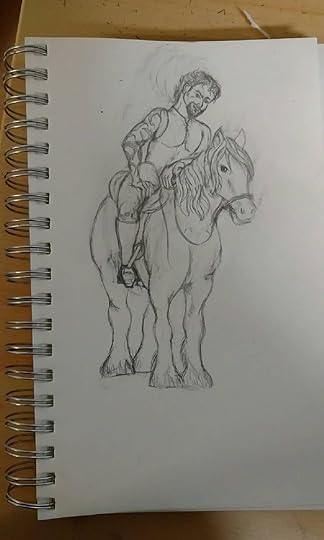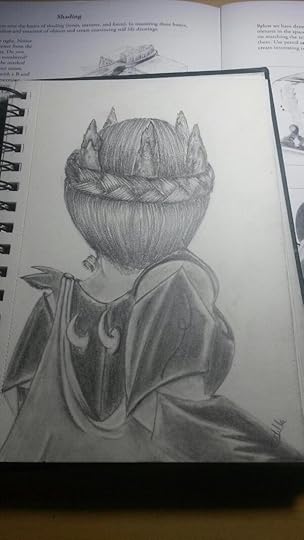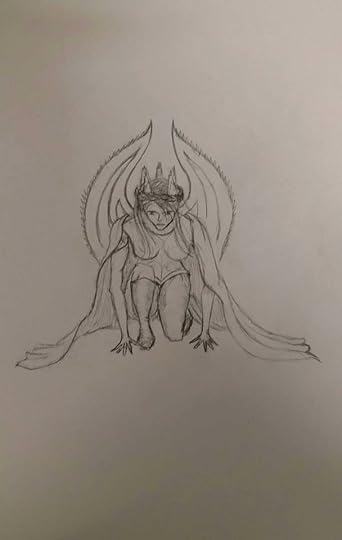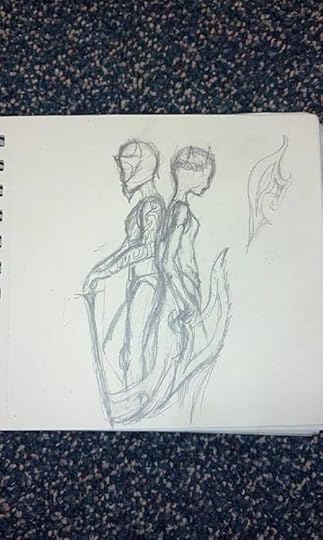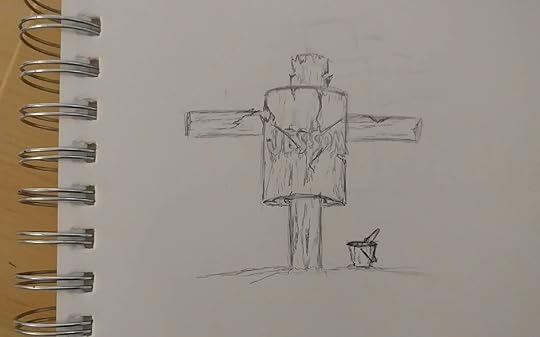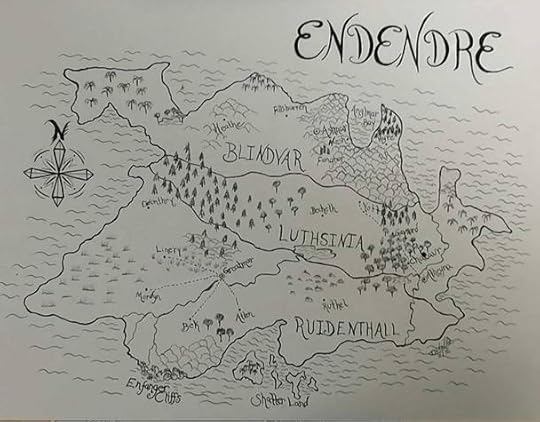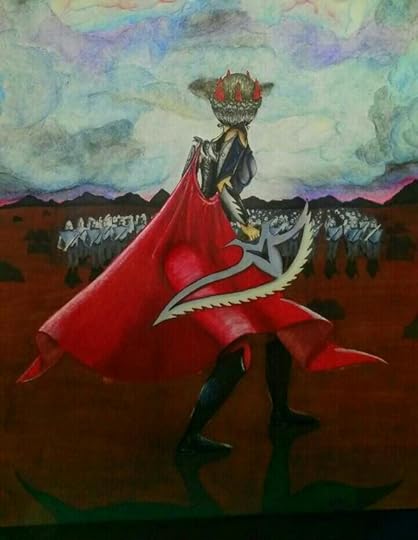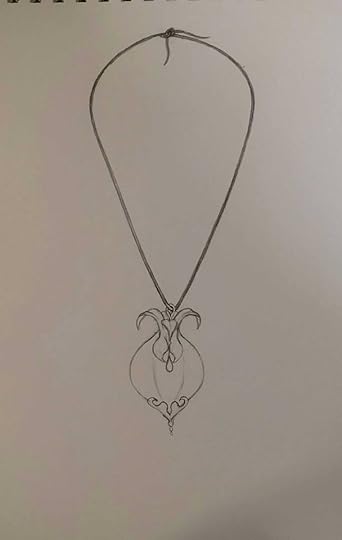J.M. Robison's Blog, page 11
October 2, 2016
Music Links in Books?
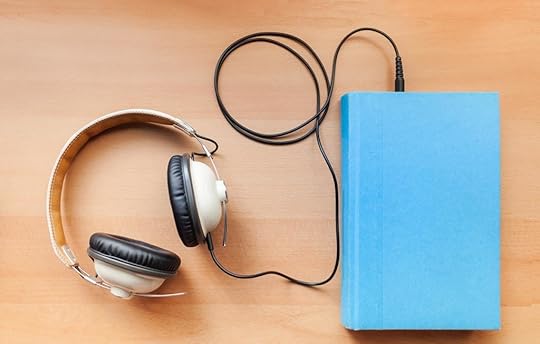 I’m a writer. To put me deeper into my story as I write it, I listen to music that deals with the theme of what I am currently writing. Such as, I listen to rain sounds while I write scenes about rain, I listen to Johann Strauss’s Voices of Spring as I write my ballroom scene in 1842 Victorian England.But I am also a reader.As a reader, I would love to read a book that included a music/sound link right at the scene that deals with that music/sound, so I can listen to rain while I read about it raining.I pitched this idea to a couple readers and writers, and they either had similar thoughts or thought the idea to be really neat.Then my publisher said this to me when I pitched the idea to them:The problem with adding music to books (not impossible) is most everything is copyrighted. We can't (aren't supposed to) even use one line from any popular song from the last 75 years. I knew a writer who wanted to use the line, "It's a lovely day for a white wedding." She changed 'nice' to 'white' but it was still too close to the song lyric.She went to Billy Idol for permission to use the two words 'white wedding' and he said 'sure, for $10,000.'Music and lyrics don't fall under the same fair use laws as book text. And it's different still for trademarks. Another issue is file size. You'd want to embed sounds into the pages where they'd play automatically, changing when the scene changes. That takes a whole other type of formatting, but also the file would be massive. Places like Amazon charge a WhisperNet fee which is an added cost by Amazon and is based on the book's file size. The larger the file size, the higher the fee.The other problem with added sounds and music is that for many readers (and writers) music (especially with lyrics) is too distracting. While you can get away with adding, let's say, some Tchaikovsky to a book, you could only use a version that was recorded over 75 years ago, because anyone else performing his music after that time means their version is copyrighted. Which means while Tchaikovsky's music is out of copyright, Andre Rieu's performance of it is not.SAD! Though I expected this. However, this is still only 2016, we’ve come a long way from 1842 England where you had to go to a ballroom to listen to music. I do believe that, with enough hype, we can institute this idea into the books we read (and write), in order to attain yet a deeper level of involvement into the story. This could also be beneficial for braille readers.Comment with your thoughts. Share this post to spread the word and see what others feel about it. It might just generate the hype we need.BACK TO MUSINGS
I’m a writer. To put me deeper into my story as I write it, I listen to music that deals with the theme of what I am currently writing. Such as, I listen to rain sounds while I write scenes about rain, I listen to Johann Strauss’s Voices of Spring as I write my ballroom scene in 1842 Victorian England.But I am also a reader.As a reader, I would love to read a book that included a music/sound link right at the scene that deals with that music/sound, so I can listen to rain while I read about it raining.I pitched this idea to a couple readers and writers, and they either had similar thoughts or thought the idea to be really neat.Then my publisher said this to me when I pitched the idea to them:The problem with adding music to books (not impossible) is most everything is copyrighted. We can't (aren't supposed to) even use one line from any popular song from the last 75 years. I knew a writer who wanted to use the line, "It's a lovely day for a white wedding." She changed 'nice' to 'white' but it was still too close to the song lyric.She went to Billy Idol for permission to use the two words 'white wedding' and he said 'sure, for $10,000.'Music and lyrics don't fall under the same fair use laws as book text. And it's different still for trademarks. Another issue is file size. You'd want to embed sounds into the pages where they'd play automatically, changing when the scene changes. That takes a whole other type of formatting, but also the file would be massive. Places like Amazon charge a WhisperNet fee which is an added cost by Amazon and is based on the book's file size. The larger the file size, the higher the fee.The other problem with added sounds and music is that for many readers (and writers) music (especially with lyrics) is too distracting. While you can get away with adding, let's say, some Tchaikovsky to a book, you could only use a version that was recorded over 75 years ago, because anyone else performing his music after that time means their version is copyrighted. Which means while Tchaikovsky's music is out of copyright, Andre Rieu's performance of it is not.SAD! Though I expected this. However, this is still only 2016, we’ve come a long way from 1842 England where you had to go to a ballroom to listen to music. I do believe that, with enough hype, we can institute this idea into the books we read (and write), in order to attain yet a deeper level of involvement into the story. This could also be beneficial for braille readers.Comment with your thoughts. Share this post to spread the word and see what others feel about it. It might just generate the hype we need.BACK TO MUSINGS
Published on October 02, 2016 03:42
Print Books Are Not Dead
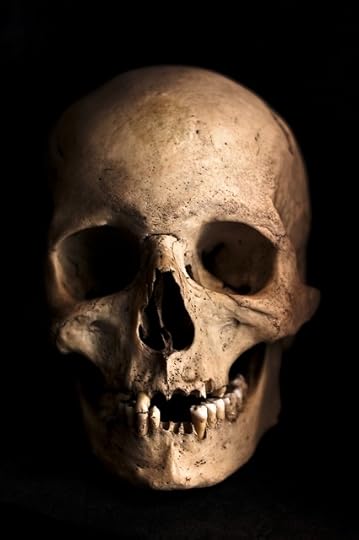 I hear people say that print books are dead. I don’t think that is true. Because there is always a need for print books.THE BLIND:Blind people can’t read ebooks. But they CAN read braille, which can only happen on good ol’ paper.ILLUSTRATIONS:I wanted to have illustrations in my book, to have a picture to head off each of my chapters for my book getting published. Because they do ebooks first before print, my publisher said no, because it would make the file size much too big for my ebook if illustrations were included. I barely made off with getting my map included in my book. Remember Harry Potter’s fun illustrations at the start of every chapter? That would not have happened had it been an ebook, though other publishers may be able to get away with it. I’m just speaking about mine.HARD ON EYES:I don’t read ebooks myself because there is something alluring about paper and ink. But I spoke to another “non-ebook” reader who said he didn’t read them because the screen is hard on his eyes.ONE DAY WE WON’T HAVE INTERNET:I know you don’t believe me on this, but I’m prepared for the day when we don’t have internet. Or electricity. And when that day happens, I’ve got a happy bookshelf with all my favorite books I can still read and read to my children.3rd WORLD COUNTRIES WHO ALREADY DON’T HAVE INTERNET OR ELECTRICITY:Aren’t they allowed books? They don’t have e-readers. Don’t rob them of paper books, which is all they have.INMATES IN JAILS:I work in a county jail, and the inmates don’t have e-readers. But they do have paper books, and keeping them reading keeps them out of trouble.STUCK SOMEWHERE AND FORGOT YOUR E-READER:But there is a “free book” shelf nearby? Thank goodness you have a back-up paper book to read.MILITARY:I’ve deployed to Afghanistan. No e-reader for any of us. But we had access to paper books. Thank goodness.SCHOOLS:I’m from a poor family. Even if we had e-readers when I grew up, I wouldn’t have owned one. Paper books to the rescue for me!I’m a spokesman for paper books, and I’m pleading with you not to forget about them. They are not dead. They still have uses that e-readers do not.BACK TO MUSINGS
I hear people say that print books are dead. I don’t think that is true. Because there is always a need for print books.THE BLIND:Blind people can’t read ebooks. But they CAN read braille, which can only happen on good ol’ paper.ILLUSTRATIONS:I wanted to have illustrations in my book, to have a picture to head off each of my chapters for my book getting published. Because they do ebooks first before print, my publisher said no, because it would make the file size much too big for my ebook if illustrations were included. I barely made off with getting my map included in my book. Remember Harry Potter’s fun illustrations at the start of every chapter? That would not have happened had it been an ebook, though other publishers may be able to get away with it. I’m just speaking about mine.HARD ON EYES:I don’t read ebooks myself because there is something alluring about paper and ink. But I spoke to another “non-ebook” reader who said he didn’t read them because the screen is hard on his eyes.ONE DAY WE WON’T HAVE INTERNET:I know you don’t believe me on this, but I’m prepared for the day when we don’t have internet. Or electricity. And when that day happens, I’ve got a happy bookshelf with all my favorite books I can still read and read to my children.3rd WORLD COUNTRIES WHO ALREADY DON’T HAVE INTERNET OR ELECTRICITY:Aren’t they allowed books? They don’t have e-readers. Don’t rob them of paper books, which is all they have.INMATES IN JAILS:I work in a county jail, and the inmates don’t have e-readers. But they do have paper books, and keeping them reading keeps them out of trouble.STUCK SOMEWHERE AND FORGOT YOUR E-READER:But there is a “free book” shelf nearby? Thank goodness you have a back-up paper book to read.MILITARY:I’ve deployed to Afghanistan. No e-reader for any of us. But we had access to paper books. Thank goodness.SCHOOLS:I’m from a poor family. Even if we had e-readers when I grew up, I wouldn’t have owned one. Paper books to the rescue for me!I’m a spokesman for paper books, and I’m pleading with you not to forget about them. They are not dead. They still have uses that e-readers do not.BACK TO MUSINGS
Published on October 02, 2016 03:31
War Queen Fan Art
Published on October 02, 2016 03:06
Carolin Gill
Published on October 02, 2016 01:09
October 1, 2016
Old English Dictionary
You don't need this dictionary to enjoy the book, but it's always fun learning about history. Especially so you can call a younghede waghalter a soiled codpiece and get away with it._____________________________________________________________ART: Are.BESEECH: Request, ask.BESOUGHT: Asked, made request.BETWIXT: Between.BREEDBATE: A person or something that creates strife.BUGLE-BEARD: A shaggy beard like buffalo hair.CANST: Can.CODPIECE: A covering flap or pouch that attaches to the front of the crotch of men’s trousers.COSH: A small cottage, hut.DOST: Do, does.DRETCH: Torment.DURST: Dare.EYNDILL: Jealous.FLESH-SPADES: FingernailsFONKIN: a little fool.FOPDOODLE: A simpleton.FULLSOME: Rich, plentiful.GARDEROBE: Medieval toilet.HUZZAH: Originally a sailor’s cheer or salute. To shout aloud.HITHER: HereJUVAMENT: Aid!; Help!MAW-WALLOP: A badly cooked mess of food.MERRY-GALL: A sore produced by chafing.MILDFUL: Merciful.NARY: None; absolutely nothing; not even close to anything.NAUGHT: Nothing.OVERMANY: A lot.PUDH: Horrible.SHALL or SHALT: Will.SHAN’T: Won’tTHEE, THOU: you.THINE, THY: your.THITHER: there.TROW: To think or suppose.VASQUINE: A petticoat .WAGHALTER: A rogue likely to swing in a gallows.WHENCE: whereWHIFLING: An insignificant creature.WHISTERSNEFET: A blow to the ear.WIDDERSHINS: Unlucky, prone to misfortune.WIST: Knew.WIT: To know, know.WOODNESS: Madness, insanity.YE: YouYORE: years ago.YOUNGHEDE: A youth.LIST COURTESY OF:http://www.ibequeaththee.com/oldengli...
Published on October 01, 2016 07:05

